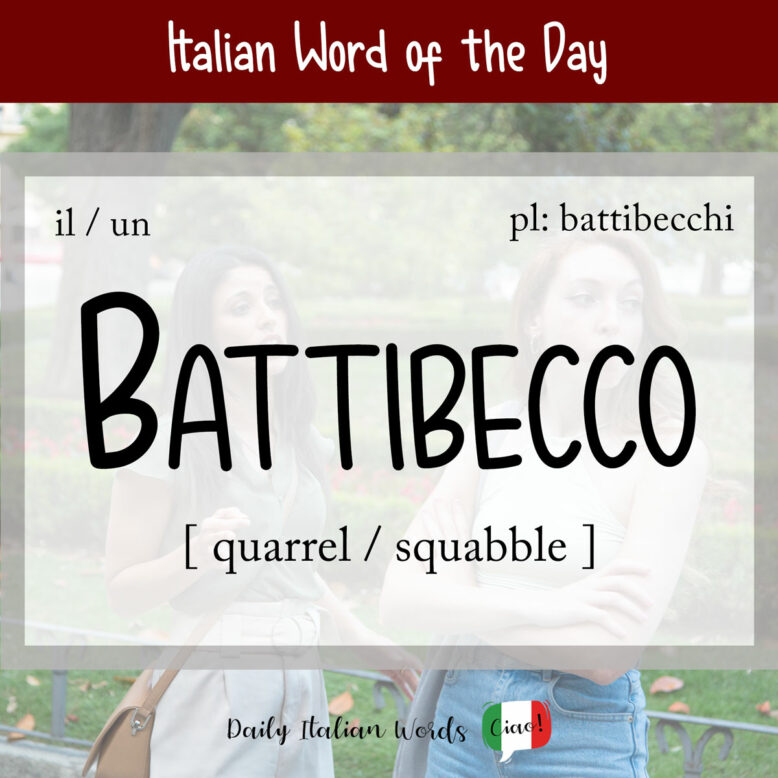Battibecco is an Italian word that can be translated to mean quarrel or squabble in English. It is the combination of the verb battere, which means “to hit” or “to beat”, and the masculine noun becco, which means the beak of a bird.

Because it is a masculine noun, it takes the following definite and indefinite articles. Remember that the -co in battibecco becomes -chi in the plural, not -ci.
- il battibecco = the squabble
- i battibecchi = the squabbles
- un battibecco = the squabble
- (dei) battibecchi = (some) squabbles
If you want to translate the verbs to quarrel / to squabble, you have two options: you can either use the single verb battibeccare or you can opt for the expression avere un battibecco. In either case, the verb tends to be followed by the preposition con (with).
Ho avuto un battibecco con un cliente noioso.
I had a quarrel with an annoying customer.
We can assume that battibecco originally referred to a physical altercation between birds, given the reference to beaks. Specifically, it evokes images of chickens squabbling in the henhouse, or cockfights, in which two roosters (galli) use their beaks as a weapon to injure their opponent. Thankfully, this brutal bloodsport has been banned in most European countries, including Italy.
Over time, the term has come to be used more broadly to refer to any brief verbal quarrel over a trivial matter.
Perché battibecchi sempre con tua sorella?
Why are you always bickering with your sister?

Heather Broster is a graduate with honours in linguistics from the University of Western Ontario. She is an aspiring polyglot, proficient in English and Italian, as well as Japanese, Welsh, and French to varying degrees of fluency. Originally from Toronto, Heather has resided in various countries, notably Italy for a period of six years. Her primary focus lies in the fields of language acquisition, education, and bilingual instruction.


